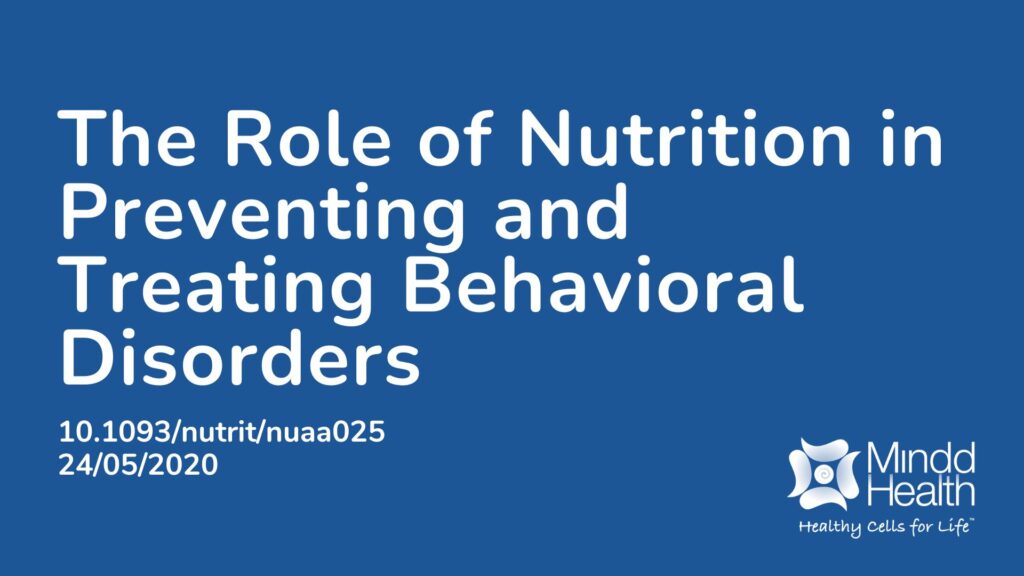Summary:
Behavioral health encompasses a variety of factors and symptoms, ranging from daily coping mechanisms to disorders like depression and anxiety. In 2017, over 46.6 million adults in the U.S. reported experiencing mental illness, underscoring the need for effective treatment and prevention strategies. Nutrition plays a vital role in preventing and treating these disorders, as poor nutrition can negatively impact the neuroendocrine system. Essential nutrients such as tryptophan, vitamins B6 and B12, folic acid, and omega-3 fatty acids, are crucial for producing neurotransmitters that regulate mood, appetite, and cognition. Consequently, inadequate nutrient intake is a significant risk factor for behavioral health issues, highlighting the importance of nutritional modifications in management strategies. The International Society for Nutritional Psychiatry Research advocates for integrating nutritional medicine into psychiatric practices, emphasizing the necessity for research, education, and policy support. However, establishing an evidence base is challenging due to the complex nature of behavioral health disorders, influenced by various biological, environmental, social, and intrapersonal factors. Additionally, the relationship between diet and behavioral health is often bidirectional; poor dietary habits may result from or contribute to these disorders, creating a cyclical pattern where mental well-being influences lifestyle choices. This narrative review explores the global impact of depression and anxiety while summarizing recent findings on the role of diet and nutrition in preventing and managing these conditions. Current evidence suggests that healthy eating patterns aligned with dietary recommendations may support the prevention and treatment of depression and anxiety. The findings indicate that diet and nutrition play a causal role in behavioral health disorders, suggesting that dietary interventions could improve outcomes for affected individuals. Therefore, nutritional medicine should be prioritized in psychiatric practice, particularly for addressing behavioral health disorders related to suicide risk, psychotic disorders, and others. Research supports a healthy dietary pattern rich in fruits, vegetables, whole grains, low-fat dairy, and lean proteins. Additionally, fatty fish high in omega-3 fatty acids and olive oil are beneficial. For vegetarian and vegan diets, ensuring nutritional adequacy, particularly for omega-3 fatty acids (from algae, walnuts, and flax), iron (from legumes and leafy greens), and vitamin B12 (from fortified foods or supplements), is crucial to support mental health.
Abstract:
Suboptimal nutrition has been implicated in the underlying pathology of behavioral health disorders and may impede treatment and recovery. Thus, optimizing nutritional status should be a treatment for these disorders and is likely important for prevention. The purpose of this narrative review is to describe the global burden and features of depression and anxiety, and summarize recent evidence regarding the role of diet and nutrition in the prevention and management of depression and anxiety. Current evidence suggests that healthy eating patterns that meet food-based dietary recommendations and nutrient requirements may assist in the prevention and treatment of depression and anxiety. Randomized controlled trials are needed to better understand how diet and nutrition-related biological mechanisms affect behavioral health disorders, to assist with the development of effective evidence-based nutrition interventions, to reduce the impact of these disorders, and promote well-being for affected individuals.
Article Publication Date: 24/05/2020
DOI: 10.1093/nutrit/nuaa025



